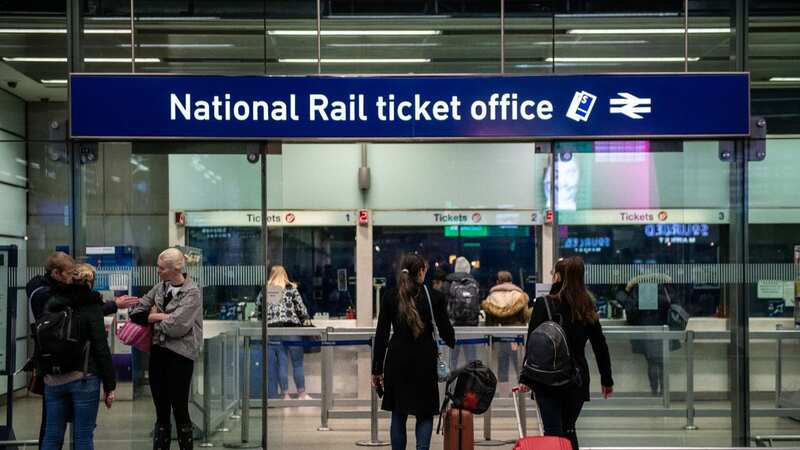Rail passengers face biggest fare hike in 27 years despite ticket office cull

Rail fares in England could rise by a mammoth 8% next year if increases are calculated in the same way as last time, campaigners warn.
Commuters look set to be hammered by the highest annual increase since 1996, analysis showed, after average wage figures were released this morning. This is despite brutal plans to close ticket counters at 974 railway stations across the country, sparking widespread condemnation.
The Department for Transport (DfT) put up fare caps for 2023 in line with average earnings the previous July, meaning passengers were clobbered for an extra 5.1%. If they do the same again the increase will be 8%.
Former Lib Dem transport minister Norman Baker, who now represents pressure group Campaign for Better Transport, said: "The Government has yet to confirm next year's rail increase, but if it follows the same formula as last year and uses today's average earnings growth rate, passengers will face eye-watering increases.
"Rather than hammer rail passengers yet again, the Government should freeze rail fares - as they have done with fuel duty - until the long-promised ticketing reform takes place."
 Teachers, civil servants and train drivers walk out in biggest strike in decade
Teachers, civil servants and train drivers walk out in biggest strike in decade
A DfT spokeswoman said: "Following last year's biggest ever Government intervention to cap rail fare increases well below inflation, we'll continue to protect passengers from cost-of-living pressures and we will not increase next year's rail fares by as much as the July RPI figure.
"Any increase will also be delayed until March 2024, temporarily freezing fares for passengers to travel at a lower price for the entirety of January and February as the Government continues with its plan to halve inflation."
* Follow Mirror Politics on Snapchat, Tiktok, Twitter and Facebook.
Read more similar news:
Comments:
comments powered by Disqus

































